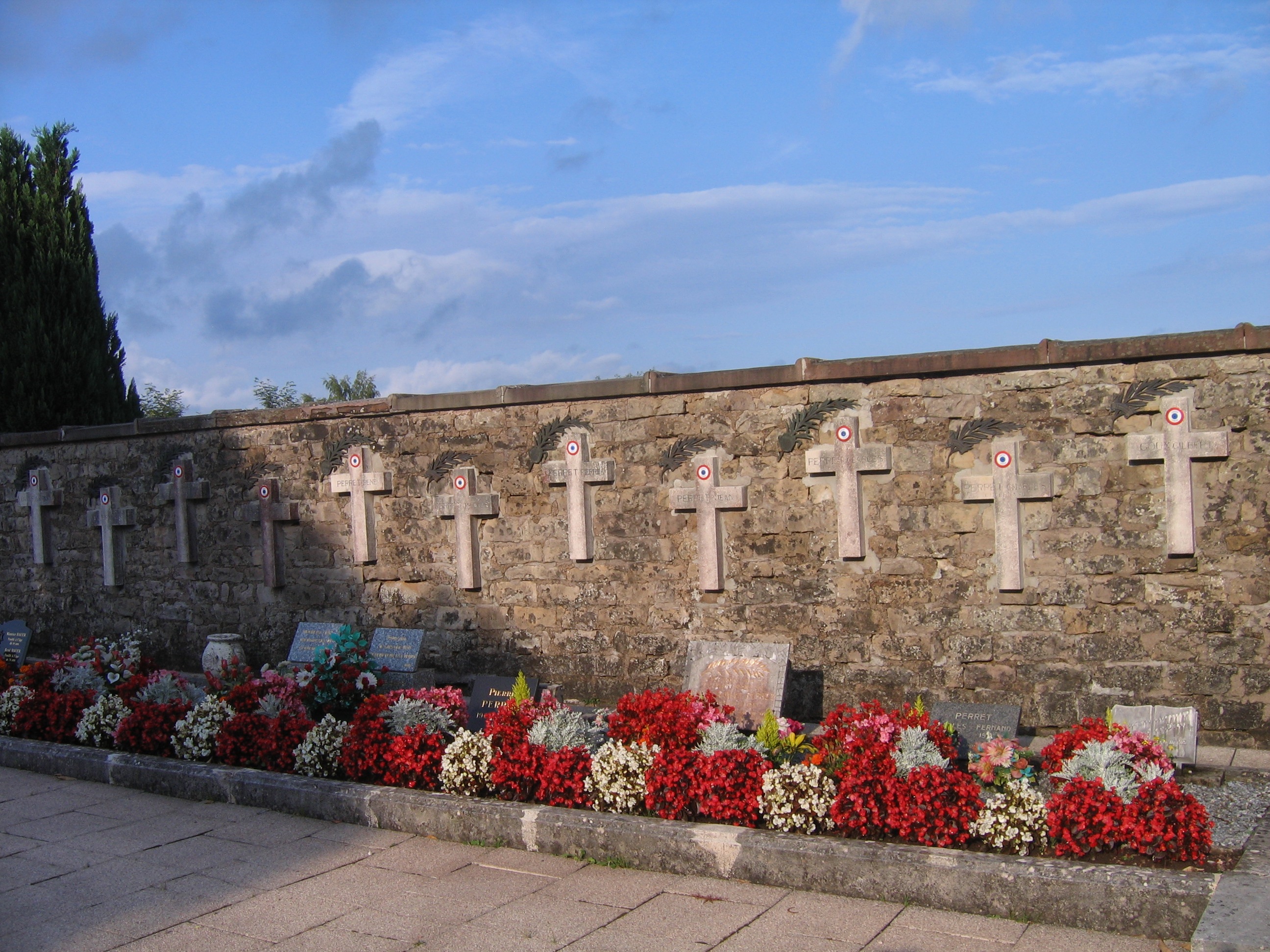A Hero is Buried
Sunday, September 9, 1944 was the first of many sad days for the people of Etobon. Jules Tournier, the commander of the maquis fighters, had been shot during a gun battle with German troops. His funeral was held September 9.
Jules Perret writes,
"3 o’clock. We’re burying Tournier on a beautiful, calm, sweet Sunday. Far away, the sound of an airplane. Who would think, to see all these men in their Sunday best, that they were resistance fighters burying their comrade who was killed yesterday? M. Marlier preached a really beautiful sermon. He admired Tournier a lot, such a courageous leader. A brave one has left us.
After the funeral, I’ll take some aspirin to the wounded, with the gendarmes, at la Fontaine qui Saute. To start with, seven Russians and Poles in a kind of cave, under the cliff, without anyone watching them. Farther on, near the big cleft rock that’s been transformed into a dormitory, two Germans. In the kitchen, a lean-to with a wall of timber, four gendarmes and eight prisoners, including the woman arrested for collaborating, who’s dressed like a man, the cook for the group. The last to arrive is an Alsacien, who speaks good French. Everyone warms themselves around the fire and seems to be happy. The wounded man was happy to get the aspirin. He asked me what Jean’s address was and said the gendarmes were all very nice. An idyll."

 Katherine Douglass
Katherine Douglass